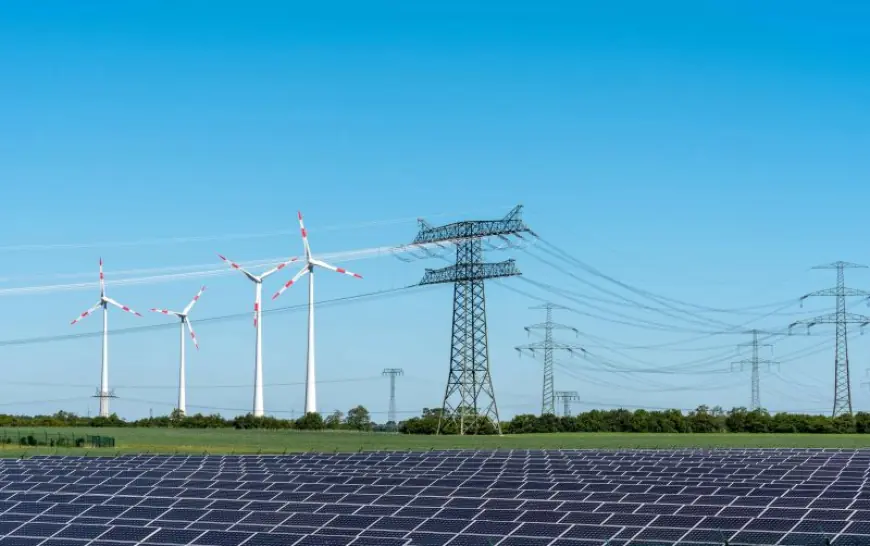Power System Studies 101: Australia’s Approach to System Analysis and Planning
Power system studies are detailed analyses that evaluate the performance, stability, and reliability of an electrical network.

Australia’s energy landscape is rapidly evolving. With the growing integration of renewable energy, rising electricity demands, and the need for grid reliability, power system studies have become more important than ever. These studies form the backbone of electrical planning, ensuring that power systems operate efficiently, safely, and sustainably.
Whether it’s a new industrial facility, a renewable energy project, or an urban expansion, power system studies Australia play a vital role in system design, performance evaluation, and long-term planning.
What Are Power System Studies?
Power system studies are detailed analyses that evaluate the performance, stability, and reliability of an electrical network. They help engineers and consultants understand how electrical systems behave under normal and abnormal operating conditions.
By simulating real-world scenarios, these studies allow planners to identify risks, optimize system performance, and design infrastructure that can handle future demands. They are typically conducted by power system engineering consultants who use advanced tools and software for precise analysis.
Why Power System Studies Are Essential in Australia
Australia’s electricity sector faces unique challenges, such as long transmission distances, diverse geographic conditions, and the rapid adoption of renewable energy. Power system studies provide solutions by:
-
Ensuring Reliability: Minimizing power outages and maintaining system stability.
-
Improving Efficiency: Reducing energy losses and enhancing system performance.
-
Supporting Renewables: Integrating solar, wind, and battery storage into existing grids.
-
Maintaining Safety: Preventing equipment failures and ensuring compliance with Australian standards.
-
Planning for Growth: Anticipating future energy demand in growing cities and industries.
From mining operations in remote regions to metropolitan networks in cities like Sydney, Melbourne, and Adelaide, power system studies ensure that energy delivery remains consistent and dependable.
Types of Power System Studies
Different studies are carried out depending on the needs of a project or facility. Some of the most common include:
1. Load Flow Analysis
Also known as power flow analysis, this study evaluates how electricity is distributed across a network. It identifies voltage drops, line losses, and bottlenecks, ensuring that systems operate efficiently under various load conditions.
2. Short-Circuit Studies
These determine the fault currents that flow during abnormal conditions like short circuits. Accurate data helps in selecting protective devices and ensuring equipment safety.
3. Protection Coordination Studies
These studies ensure that circuit breakers, fuses, and relays operate in the correct sequence during faults. Proper coordination minimizes downtime and protects valuable assets.
4. Harmonic Analysis
With the rise of electronic equipment and renewable energy, harmonics can cause voltage distortion. Harmonic analysis identifies these issues and recommends corrective measures such as filters.
5. Arc Flash Studies
Arc flash hazards can be deadly. This study evaluates the potential energy released during an arc fault and suggests safety measures like proper PPE (personal protective equipment) and system adjustments.
6. Stability Studies
These assess the ability of a power system to remain stable after disturbances, such as sudden load changes or generator failures. Stability studies are crucial for large interconnected networks.
Role of Power System Engineering Consultants
Conducting these studies requires expertise, precision, and industry knowledge. Power system engineering consultants provide the technical guidance needed to analyze and interpret results. They also recommend practical solutions, whether it’s upgrading equipment, adjusting protection settings, or reconfiguring networks.
Consultants also support testing and commissioning services, ensuring that systems perform as designed once installed. By combining system studies with on-site testing, they deliver end-to-end solutions for businesses and utilities.
Connection with Broader Electrical Services
Power system studies are part of a larger framework of electrical planning and safety. For example:
-
Power Transformer Testing Services: Ensuring transformers operate efficiently and reliably.
-
Test and Tag Services in Adelaide: Verifying the safety of portable electrical appliances.
-
HV Testing and Commissioning Services: Validating high-voltage systems for safe operation.
Together, these services create a complete strategy for electrical reliability, safety, and compliance.
Benefits of Power System Studies
Investing in detailed studies provides both immediate and long-term benefits:
-
Reduced Downtime: Prevents costly interruptions by identifying risks early.
-
Optimized Performance: Ensures systems operate at peak efficiency.
-
Cost Savings: Reduces unnecessary energy losses and equipment failures.
-
Regulatory Compliance: Meets Australian safety and environmental standards.
-
Future-Ready Infrastructure: Supports expansion and integration of new technologies.
For businesses and utilities across Australia, these benefits translate into improved productivity, safer workplaces, and sustainable growth.
Australia’s Future in Power System Planning
As Australia continues its transition toward renewable energy, power system studies will play a pivotal role in shaping the future grid. From supporting solar farms in Queensland to wind projects in South Australia, system studies ensure that new energy sources integrate seamlessly with existing networks.
With increasing digitalization and the adoption of smart grids, consultants will leverage advanced modeling tools and real-time data to provide even more accurate and efficient solutions. This forward-looking approach will help Australia maintain reliable power delivery while meeting sustainability goals.
Conclusion
Power system studies are not just technical exercises—they are essential for building safe, efficient, and future-ready electrical networks. By analyzing system performance, identifying risks, and recommending solutions, these studies ensure reliable energy delivery across Australia.
With the expertise of power system engineering consultants and the support of complementary services like testing and commissioning, test and tag Adelaide, and power transformer testing, businesses and utilities can achieve both safety and efficiency.
What's Your Reaction?
 Like
0
Like
0
 Dislike
0
Dislike
0
 Love
0
Love
0
 Funny
0
Funny
0
 Angry
0
Angry
0
 Sad
0
Sad
0
 Wow
0
Wow
0















































